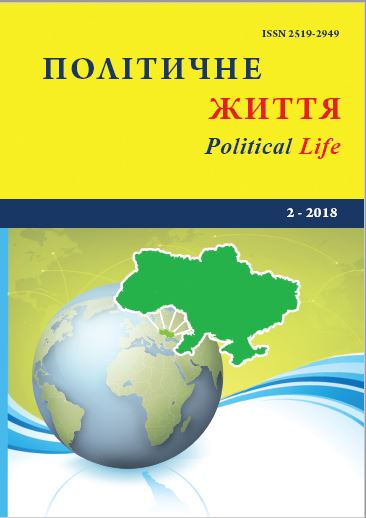Information terrorism as instrument of influence on the information conversion in the global environment.
DOI:
https://doi.org/10.31558/2519-2949.2018.2.22Keywords:
information, information terrorism, informational conformism, information space, influence, counteraction, cyberterrorismAbstract
The article examines the forms in which modern information terrorism manifests itself, and is basically cyberterrorism and media-terrorism. It is proved that these forms arise, first of all, due to lack of knowledge of the population and the reluctance to analyze the information received from the media, the environment or authorities; in the second, because of the desire of the leadership of the state or a specific person to control the social and political behavior of citizens. At the same time, it is noted that the confrontation with information terrorism and conformism faces problems, including: digital inequality in access to information and communication facilities of different sections of the population; insufficient legal regulation; information gap of the Third World countries from developed countries; control of information space on the part of state institutions through censorship, gatekeeping; protection of information space from unauthorized interference and hacker attacks, etc. The world community and individual countries are successfully taking steps to protect their information space from psychological (through soft power) and cyber-attacks; appropriate structures are being created, specialized training is provided to overcome informational abysses and digital divide – phenomena that characterize asymmetry in access to information sources in different subjects. The digital divide is one of the main problems of the development of information space and information society. It is stressed that the state can overcome the information gap and digital inequality, making new technologies more accessible to less well-off sections of society, and organize computer literacy training, especially for young people and the elderly.References
Парыгин Б. Д. Социальная психология / Б. Д. Парыгин. – СПб, 1999. – 592 с.
Зимбардо Ф. Социальное влияние / Ф. Зимбардо, М. Ляйппе. – Питер, 2000. – 448 с.
Эко У. Открытое произведение. – Санкт-Петербург: Академический проект, 2004. – с.169-170.
Платонов Ю. П. Психология коллективной деятельности. Теоретико-методологический аспект / Ю. П. Платонов. – Л.: Изд-во ЛГУ, 1990. – 184 с.
Кон И.С. В поисках себя. Личность и ее самосознание / И.С. Кон. – М.: «Политиздат», 1984. – 151 с.
Куса І. Інформаційний аспект тероризму та переговорний процес із терористами [Електронний ресурс] / І. Куса. – Режим доступу: http://mskod.com/informatsiyniy-aspekt-terorizmu-ta-peregovorniy-protses-izteroristami/.
Бойченко О.В. Медіа-тероризм: особливості сучасних ознак інформаційній безпеці / О.В. Бойченко // Інтегровані інтелектуальні робототехнічні комплекси (ПРТК-2009): друга міжнар. наук.-практ. конф. (25-28 травня 2009 р.). – К.: НАУ, 2009. – С. 230-232.
Кібертероризм у складі сучасних проблем національної безпеки [Електронний ресурс]. – Режим доступу: www.nbuv.gov.ua/Portal/soc_gum/bozk/2007/17text/g17_30.htm.
Конвенція про кіберзлочинність : за станом на 7 вересня 2009 р [Електронний ресурс]. – Режим доступу: http://zakon4.rada.gov.ua/laws/show/994_575
Кібертероризм у складі сучасних проблем національної безпеки [Електронний ресурс]. – Режим доступу: www.nbuv.gov.ua/Portal/soc_gum/bozk/2007/17text/g17_30.htm.
Гавриш С.Б. Комп’ютерний тероризм: сучасний стан, прогнози розвитку та шляхи протидії / С.Б. Гавриш // Боротьба з організованою злочинністю і корупцією (теорія і практика). – 2009. – № 20.
Митко А. М. Інформаційна демократія: реалії та виклики часу : [монографія]. – Луцьк : Вежа-Друк, 2014. – 400 с.
Свентицька О.В. Інформаційний тероризм як феномен сучасної міжнародної політики: автореф. дис… канд. політ. наук: 23.00.03 / Свентицька О.В. – К., 2007. – 19 с.

